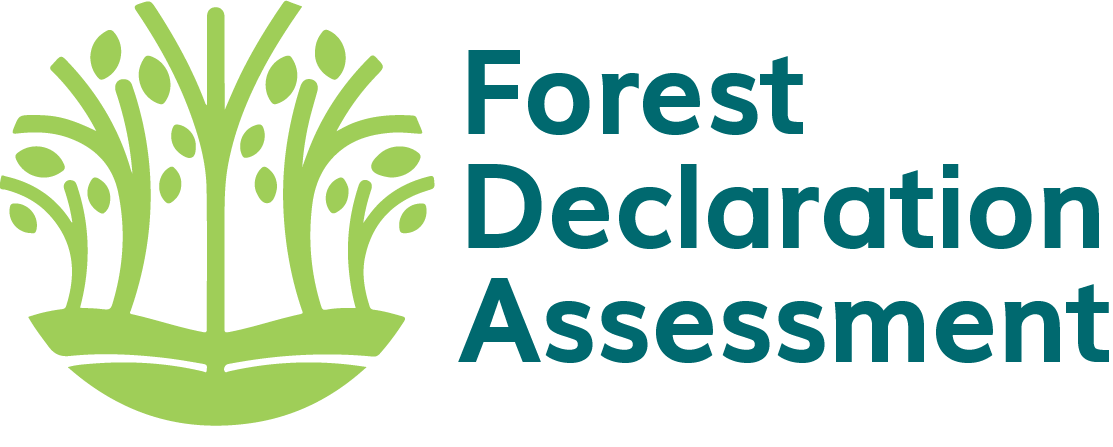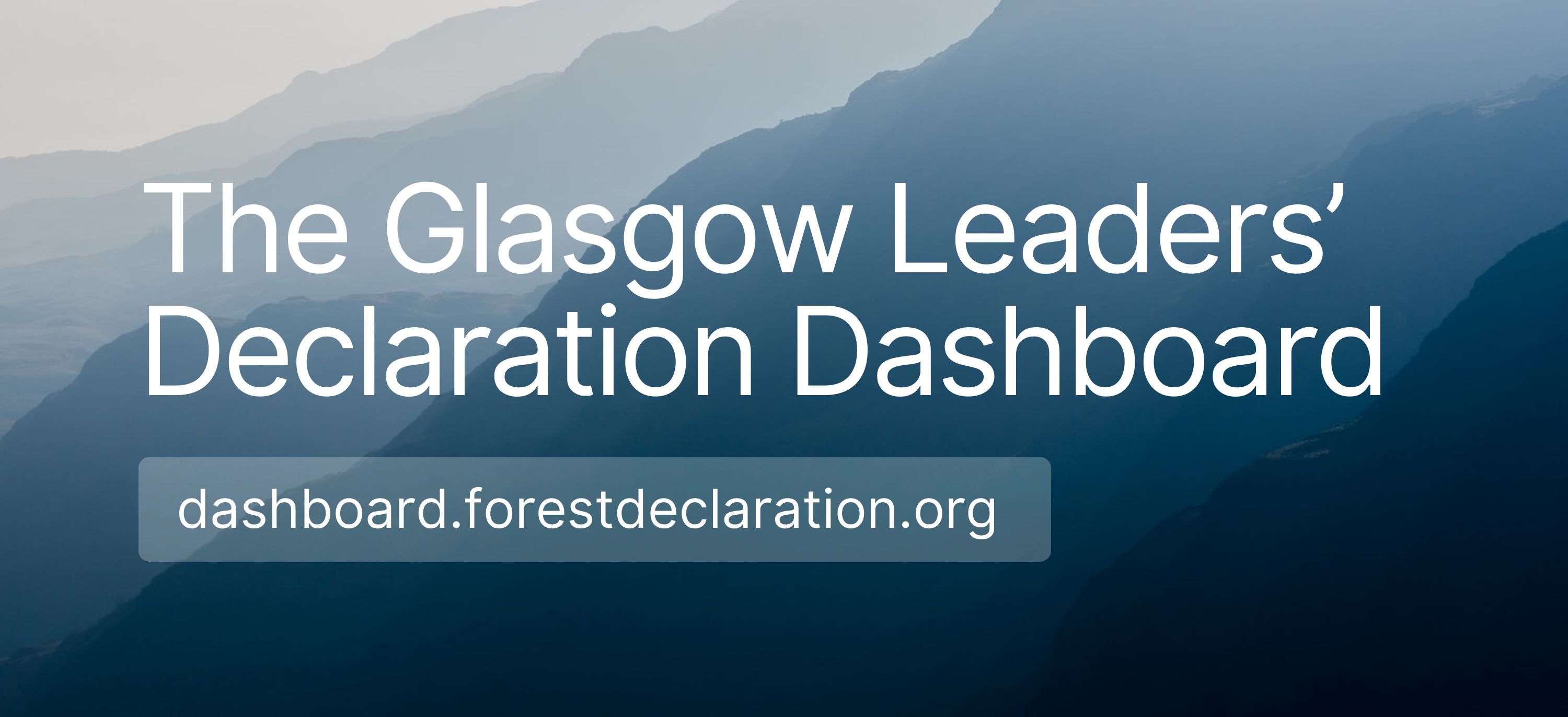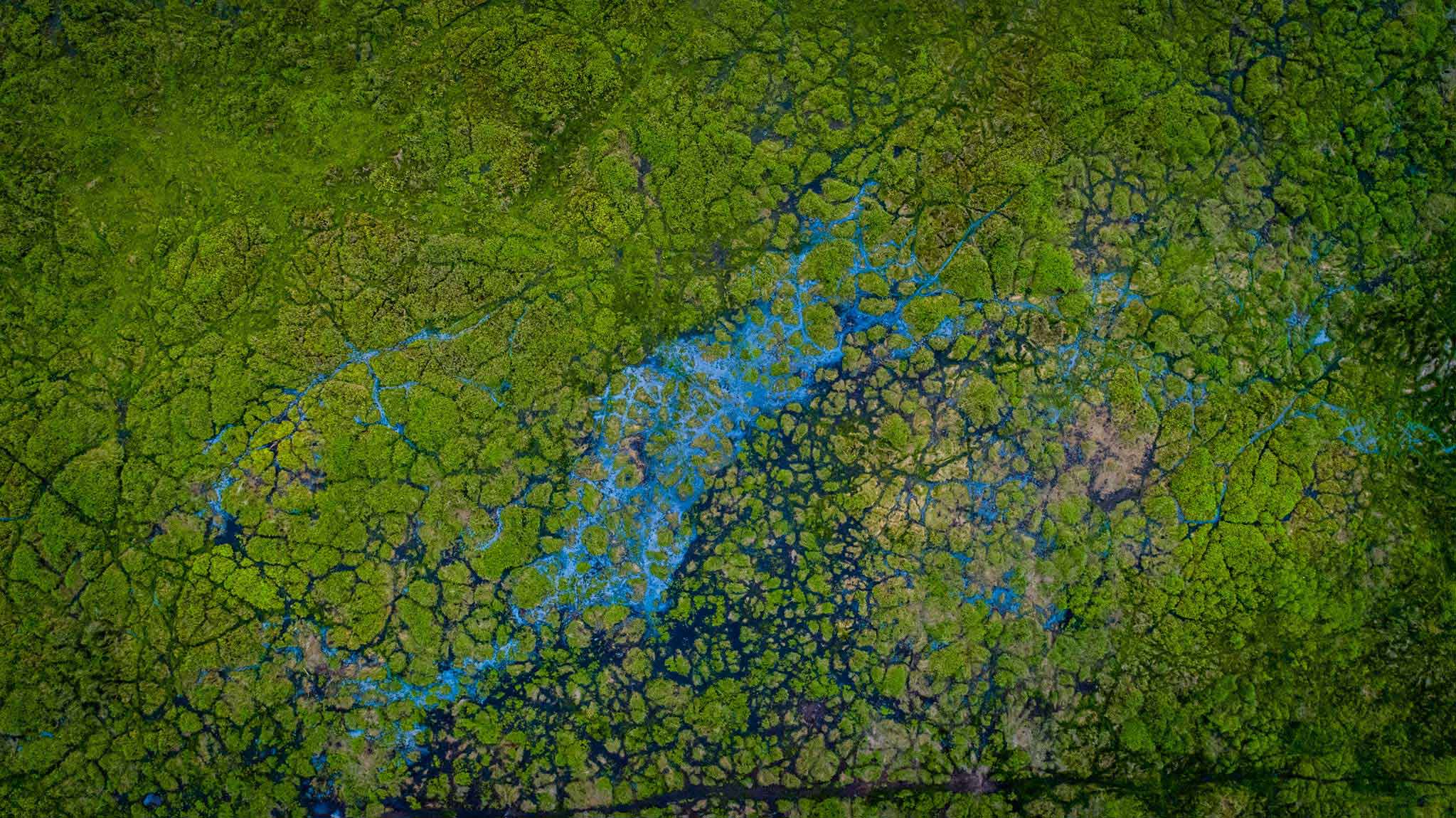The New York Declaration on Forests (NYDF) Global Platform announces the launch of the refreshed NYDF and updated global forest goals on October 13, 2021, at 9am EST.
Originally launched in 2014 at the United Nations Secretary General’s Climate Action Summit, the New York Declaration on Forests (NYDF) is a multi-stakeholder coalition comprised of governments, companies, Indigenous Peoples and local communities, and non-governmental organizations to set forth a global framework for forest action to tackle the climate and biodiversity crises. The ten goals of the Declaration seek to halt natural forest loss by 2030, restore 350 million hectares of degraded landscapes and forestlands, improve governance and the rights of forest communities, increase financial flows to forests, and reduce carbon emissions from deforestation and forest degradation.
Yet, despite the ambitious forest agenda set out in 2014, the world is not on track to meet the overarching objective of the NYDF to halt deforestation by 2030. Now, making progress to meet existing forest commitments is more important than ever in this critical decade for climate action to keep global temperatures below 1.5 degrees Celsius in line with the Paris Agreement and to achieve the Sustainable Development Goals (SDGs).
Protecting forests and avoiding deforestation and forest degradation contributes significantly to reducing greenhouse gas emissions, provides biodiversity protection and ecosystem resilience, improves water security, and ensures sustainable livelihoods and access to food. Moreover, protecting forests reduces the risks of future pandemics and provides other essential health benefits.
However, according to the NYDF Progress Assessment, the global deforestation rate is currently around 10 million hectares per year. To counteract this, deforestation needs to decrease by nearly 1 million hectares per year to achieve the NYDF goal of ending deforestation by 2030.
This slow pace of progress catalyzed a process to update the NYDF goals and accompanying action agenda to enhance accountability in strengthening political will and accelerating action to meet the goals. This participatory refresh process was informed by experience from endorsers and partners; reflections of progress made by other forest-related commitments since 2014; considered new individual and collective commitments from governments, financial sector and the private sector; and recognizes the fundamental role of Indigenous Peoples and local communities as forest stewards.
It's worth noting that in the past five years, there have been several signs of progress: new pledges by financial institutions to increase forest-friendly investments; renewed commitments by companies to achieve deforestation-free supply chains; enhanced implementation of Reduced Emissions from Deforestation and forest Degradation (REDD+) and access to results-based payments for forest countries; new regulations from governments that import forest-risk products to prioritize deforestation-free commodities; and more accountability tools for monitoring and to measuring progress towards these commitments. Yet, more urgent action is needed to protect and restore forests action to tackle the climate, biodiversity, and health crises the world is experiencing.
In response, the newly launched NYDF includes key updates such as
- emphasizing the importance of preserving forest integrity by protecting intact forests;
- promoting a systemic and multi-sectoral approach to ending deforestation in economic supply chains;
- strengthening the recognition of the rights of Indigenous Peoples and local communities and their contribution to forests;
- and updating language to focus on implementation, particularly for those goals that are considered achieved (Goal 6 on the SDGs and Goal 7 on the Paris Agreement).
See the text of the Declaration below and here.
With these updates, the NYDF has re-opened the call to endorse the Declaration and will focus on increasing the number of endorsers from key sectors such as finance, non-agricultural industries, and from countries and jurisdictions that are not already represented in the NYDF but that have a large role to play. Ultimately, the revised goals provide a more relevant and inclusive framework for forest action.
The launch of the updated New York Declaration on Forests unites current and future endorsers to prioritize implementation and accountability of existing commitments to drive collective forest action. The NYDF Global Platform calls on companies, governments, Indigenous Peoples and local communities, Nongovernmental organizations, and key decision-makers and policymakers to commit to the New York Declaration on Forests and to make the ten goals a priority to ensure we can build a sustainable and regenerative world.
NYDF Refresh Launch Webinar: October 13, 2021
On October 13th, the NYDF Global Platform hosted a virtual webinar on the "refreshed" NYDF and invited participants from across various sectors of the NYDF community. The event was a tremendous success filled with critical insights from the outstanding panelists and speakers. Participants were joined by:
- members of the NYDF Global Platform and NYDF Assessment to provide an overview of updates from the collaborative "refresh" process;
- John Hixon, Yum! Brands and Sarah Lake, Feed The Truth who reflected on the collaborative refresh process and the impact of the updated Declaration on their continued efforts in this work;
- keynote speaker, Roberto Múkaro Borrero, with an essential reminder of the need to integrate a human rights framework into the NYDF and a call to respect and protect Indigenous Peoples as the rightful stewards of forests;
- several NYDF endorsers who shared on-the-ground progress and implementation of the newly revised NYDF Goals, continued challenges, and emphasized the need for collective action;
- Edu Effiom, Cross River State Forestry Commission
- Jennifer Koinante, Yiaku Laikipiak Trust
- Silvia Llama, Pronatura Sur A.C.
- Pablo Montoya Dávila, Grupo Éxito
- Ms. Glenda Ortega, Ministry of Environment, Water and Ecological Transition of Ecuador
- and a passionate closing by Martha Isabela "Pati" Ruiz-Corzo on the need to go forth with bold new strategies in the fight against deforestation rooted in a deep sense of love and respect for the Earth and future generations.
The full recording of the event can be viewed here.
New York Declaration on Forests

Forests are essential to our future. People across the globe depend on forests for food, water, fuel, medicines, traditional cultures and livelihoods. Forests also support up to 80% of terrestrial biodiversity and play a vital role in safeguarding the climate by naturally sequestering carbon.Yet, each year an average of 10 million hectares of forest disappear, often with devastating impacts on Indigenous Peoples and Local Communities. The permanent conversion of forests for the production of agricultural commodities— such as soy, palm oil, beef and paper—accounts for roughly half of global deforestation. Infrastructure, urban expansion, energy, and mining all contribute to and often accelerate deforestation and forest degradation.
We, the endorsers, share the vision of slowing, halting, and reversing global forest loss while simultaneously enhancing food security for all. While progress is being made in many places, overall action has fallen short of the speed, scale, and finance required, including collective action to meet the NYDF goals. The years leading up to 2030 are critical for increasing ambitious, collective, and transformative action to deliver the NYDF goals.
Forests are essential for maintaining life and local livelihoods across the globe. Furthermore, reducing emissions from deforestation and increasing forest restoration is imperative for limiting global warming to 1.5°C. Forests represent one of the largest, most cost-effective climate solutions available today. Action to conserve, sustainably manage and restore forests can contribute to economic growth, poverty alleviation, rule of law, food security, clean water, climate resilience and adaptation, biodiversity conservation, and other ecosystem services. Strong forest governance is essential to protecting and sustainably managing the world’s forests, given Indigenous Peoples and Local Communities are the best defenders and protectors of forests. Centering Indigenous Peoples and Local Communities and traditional knowledge in solutions to address deforestation is essential for delivering the NYDF goals.
With our varying mandates, capabilities, and circumstances, collectively we commit to doing our part to achieve the following outcomes in partnership, including by ensuring that strong, large-scale economic incentives are in place commensurate with the size of the challenge:
- End the loss and degradation of natural forests by 2030.
- Reach the private sector goal of eliminating deforestation from the production of agricultural commodities well before 2030, recognizing that many companies have even more ambitious targets.
- Significantly reduce deforestation and degradation derived from infrastructure development and extractive industries well before 2030.
- Support alternatives to deforestation driven by activities such as, subsistence farming and reliance on fuel wood for energy, in ways that reduce poverty and promote sustainable and equitable development that is inclusive of women, youth, and Indigenous Peoples and Local Communities.
- Increase global restoration of degraded landscapes and forestlands to restore and maintain 350 million hectares of landscapes and forestlands by 2030.
- Support the implementation of actions to achieve forest targets within the Sustainable Development Goals.
- Reduce emissions from deforestation and forest degradation as part of the implementation of the Paris Agreement, in accordance with the goal of not exceeding 1.5C warming.
- Provide support for the development and implementation strategies and activities to reduce forest emissions.
- Reward countries and jurisdictions that, by taking action, reduce forest emissions and conserve and enhance forests – particularly through public policies to scale-up payments for verified emission reductions and private-sector sourcing of commodities.
- Strengthen forest governance, transparency, and the rule of law while empowering and recognizing the rights of Indigenous Peoples and Local Communities, women, and youth, especially the rights pertaining to their lands and resources.
Achieving these outcomes could achieve over 7 billion tons (CO2e) of cost-effective climate change mitigation per year by 2030. By working in partnership, we can achieve these collective goals and chart a new course toward conserving, restoring, and managing healthy forests for the benefit of all. We invite others to join us in committing to a world where people and forests grow together.




